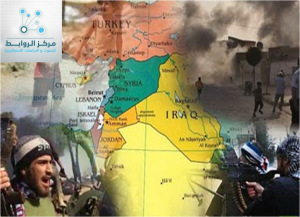The Middle East region, which is of great importance to international and regional actors, is expected to have an agenda in the next few months that could shape its future features. Among these actions is Israel’s launching of a war against Iran’s most important arm in the Arab world, Hezbollah, in Lebanon to liquidate its presence in it as Israel will target all Hezbollah positions in Lebanon, including its political stronghold in the southern suburb of the Lebanese capital Beirut. Israel has spotted about 10,000 sites of the party in the suburb to destroy them, and push the party towards Syria. The second agenda will be Iran itself, which will be on a date with an economic intelligence war, not military, launched by the United States of America with Western, Arab, Israeli and Kurdish cooperation, exploiting in their war, the state of social anxiety experienced by Iran, which is unemployment among the ranks of university graduates and institutes amounted between 26 and 35 million graduates without a job. That number itself represents a time bomb that could at any moment explode in the face of the ruling political regime in Iran if external parties can use it.
In spite of these two wars, the Middle East may witness an Iranian Turkey-Syria-Iraq alliance under the auspices of Russia. In this alliance Turkey represents the United States of America, Syria, not Iran, representing Russia, and Iraq and Iran in this alliance are represented by Iran as “close brothers”. This alliance aims at rearranging the Middle East region to serve the interests of the coalition countries. Turkey may play in this alliance the role of “mediator” to save Iran in exchange for control over the west of the Euphrates River. It may control Mosul, especially if a referendum is held in order to join it. Especially that the Afrin process, which has been clean, may be an indication of that referendum. Turkey in this alliance is one of the most countries that have pressure cards against regional countries, especially Iraq and Syria, as it can use the water weapon against these two countries.
Turkey and Iran consider any Kurdish entity on their borders to threaten their national security. This is unacceptable to them. Therefore, the referendum of the Kurdistan region of Iraq last September was a practical affirmation of this fact in the internal and external politics of these two countries. They united their positions and alliance against that referendum and sought to its failure.
This alliance did not stand at this level, but the two countries agreed to liquidate the PKK presence in Iraq. Iran was a supporter of this party and the Iraqi government provided the party with material support in the form of monthly salaries with Iran’s approval, but this has changed now. And also liquidation of the Democratic Union Party, branch of the PKK in Syria and the liquidation of the Kurdish Iranian party, “Bijak”.
Iraq is almost the weakest part of that alliance. Iraq has a population of 36 million. The circumstances that Iraq has experienced for more than three decades have transformed it into a first-class importer, importing most of its needs from Turkey and Iran. Thereby transforming it into a consumer society. In order for Iraq to return to its past as an agricultural and industrial state, it must ensure its fair share of the waters of Euphrates , but will those two countries allow the return of Iraq as a central country competing them for the leadership of the Middle East, and becoming an exporter rather than being importer ?
Iraqi Studies Unit
Rawabet Center for Research and Strategic Studies

